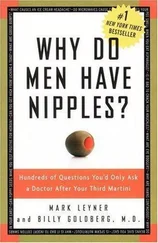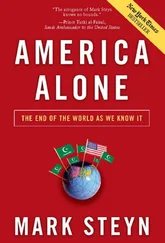There is no good answer to that question.

UPHARSIN…
By September 2010, America’s public debt was up to 94 percent of GDP.
Hey, relax, says New York Times columnist and Nobel Prize-winning economist Paul Krugman. Back in 1945, it was 113 percent. 35
That was also the year that America made Hiroshima and Nagasaki the first and to date only recipients of the world’s newest and most devastating technology. That’s a helluva bang for the buck. The America sliding ever faster to that 1945 debt burden and way past it has no such credibility—and, as every two-bit nationalist provocateur in any old dusty colonial backwater will tell you, for a superpower, credibility is essential. America hit 113 percent after a world war in which it vanquished mighty enemies of global reach and established itself as the dominant power on the planet.
What do Americans have to show for the debt this time ’round? Cash-for-clunkers? Stimulus funding for a stimulus-funding application-coordinator in Idaho? Take Your Child Bride to Work Day in Afghanistan?
As to worshipping false gods, even avowed secularists have their moments of evangelical fervor. There have been two competing theories at play in the twenty-first century. The first and better known is “globalization”—which is less a theory and more a religion with universalist claims.
To its worshippers, globalization is some kind of mysterious metaphysical force that’s out there remaking our assumptions about the planet. May the Force be with you—because, if it’s not, you’re just a squaresville daddy-o receding in the rear view mirror of history. The high priest of this cult is the New York Times ’ in-house thinker and beloved comic figure Thomas L. Friedman. Hardly a week goes by without the Times ’ most frequent flyer filing from a state-of-the-art departure lounge on the other side of the planet and marveling at its complimentary wi-fi, light-rail link, and the way his luggage was brought in by cheery native bearers in traditional dress playing some raucous Abkhazi-Nauruan hybrid of Gamelan gangsta rap on an affordable new xPod-iBox you can wear under your sarong made at a state-of-the-art plant by a small Uighur start-up backed by a Herzogovine hedge fund. All of which makes a forlorn contrast with the scene that greets him when he lands back at Newark.
The United States has two roles in a “globalized” world: it funds the transnational bodies, it keeps the sea lanes open, it’s there when an earthquake or tsunami strikes—at least until the debt and politically untouchable social programs necessitate sweeping cuts in military capability. Which, for great powers in decline, they always do.
That’s America’s first role. Its second is just as important: the burgeoning middle classes of China, India, and elsewhere improve their lives by making stuff to sell to us. America’s government is the guarantor of global order; its people are the guarantors of global prosperity. That’s the United States the world needs: in security terms, the order maker; in economic terms, the order placer.
Unfortunately, neither role is sustainable. America is on course to be the first great power in history literally to shop till we drop. And the way to bet is one hell of a drop, and sooner than you think.
“Globalization” has the appeal of all inevitablist theories: it’s gonna happen. Why? It just is. Don’t sweat it. Likewise, Francis Fukuyama and The End of History : No nation can resist the pull of western liberal democracy, and so one day the entire planet will be Sweden and there will be no more wars. These days, even Sweden isn’t Sweden. Ask a Jew in Malmö, if you can find one.
Against this globaloney is the thesis put forward by the late Samuel Huntington in The Clash of Civilizations . Huntington’s view is less appealing because it’s less sedating. Globalization asks nothing of us, whereas the clash of civilizations puts a cold hard question mark over the future. Huntington posits that cultural identifiers count for more than economic ones.
A man in a factory on the other side of the world may make parts for an electronic gizmo Thomas Friedman plays with while waiting for the VIP lounge to call his flight, but that does not mean they share anything like the same worldview. It seems sad to have to point out something so obvious.
Which, after all, is more central to a man’s identity? The fact that he makes trinkets for Thomas Friedman? Or the fact that he’s an Indonesian Muslim?
In 1996, Huntington identified ten world civilizations, including three major ones—western, Muslim, and Sinic. 36A decade and a half on, China—the Sinic power—is on the rise economically but is demographically weak, while Islam is surging demographically but is economically irrelevant, except for that portion of the Muslim world that sits on oil it needs foreigners to extract. Meanwhile, the West is in steep decline both economically and demographically. And as western civilization was the indispensable component in the construction of the modern world, that raises a question: What comes next?
Which brings us to the third line of the warning to Belshazzar, the geopolitical writing on the wall. Not a lot of Medes around these days, but the Persians are still in business, and the nuclear mullahs are eager to advance the finishing of the Great Satan and divide up what’s supposed to be a “unipolar” world. North Korea is assisting the Iranians with their delivery systems, and the Iranians are promising to share their nukes with Sudan. Far from Obama’s plea for “a world without nuclear weapons,” we face the prospect of a planet in which the wealthiest societies in history, from Norway to New Zealand, are incapable of defending their borders, while impoverished Third World basket cases go nuclear.
How long do you think that arrangement will last? As the Medes and Persians did to Belshazzar, the Russians, the Chinese, the new Caliphate, and others are looking forward to carving up the western world.
When money drains, so does power. The British learned that the hard way, even as theirs drained to the friendliest of successor powers across the Atlantic in Washington. Today, money is draining across the Pacific. They have our soul who have our bonds. Just as America had Britain’s money, so China has America’s. How will it use it to advance its power and influence?
What might prompt the threat of a little economic blackmail? American action against North Korea? Washington’s support for Taiwan? China is dangerous not (as many argue) because of its strength but because of its weakness. As I wrote in America Alone , the People’s Republic has a crude structural flaw: thanks to its disastrous one-child policy, it will get old before it gets rich, and, unless it’s planning on becoming the first gay superpower since Sparta, the millions of surplus young men whom the government’s One-Child Policy has deprived of female companionship is a recipe either for wrenching social convulsions at home—or for war abroad, the traditional surplus inventory-clearance method of great powers. That’s actually worse news than if China was cruising to uncontested global hegemony—because it means that Beijing’s calculations on how the Sino-American relationship evolves are even less likely to align with ours. China has to maximize its power before demographic decay sets in. In other words, it has strong incentives to be bold and to push, hard and fast. And, when it happens, Washington will be taken by surprise by something that was entirely inevitable.
Faced with a choice between unsustainable entitlements and maintaining armed forces of global reach, the United States, as Europe did, will abandon military capability and toss the savings into the great sucking maw of social spending. That, in turn, will make for not only a more dangerous world but a more vulnerable America that, to modify President Bush, will wind up having to fight them over here because we no longer have the capacity to fight them over there.
Читать дальше












